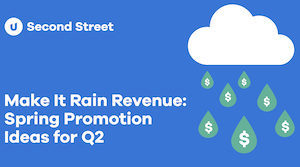What impact do you see this new ruling having on broadcasters?
Larry Walke: The new contest disclosure rule is a tremendous win for both broadcasters and consumers. It will provide broadcasters the flexibility to disclose the terms and conditions of contests and promotions online, instead of during a rapid “auctioneer-like” announcement at the end of a radio promo or a speedy scroll at the end of a TV spot. And consumers will be able to review the often complicated terms of contests at their leisure on the Internet. NAB congratulates the FCC for modernizing the contest rule to reflect how consumers access information in a digital world.
As for what impact this may have on broadcasters, we expect that many radio and TV stations will take advantage of this option to disclose the terms of contests online.
- First, at least for radio promos of contests, a station will be able to recapture some time at the end of a spot to more fully describe and promote their contests on-air.
- Second, moving contest terms to the Internet will help broadcasters better preserve the flow of programming, and provide a more enjoyable experience for listeners and viewers.
- Finally, it is possible that the new rule will reduce the number of disputes over whether a station has accurately disclosed all the “material” terms and conditions of a contest that are required by the FCC’s rules. The FCC has been fairly aggressive in enforcing its contest rules, repeatedly imposing fines on radio and TV stations for even minor mistakes in contest disclosures. So, we are hopeful that allowing stations to post any and all terms and conditions of a contest online, without having to parse out what may be “material” under the FCC’s rules, will lead to fewer FCC enforcement actions.
How would you suggest broadcasters post their contest rules?
LW: NAB cannot recommend to broadcasters how they should post their contest rules, although the benefits of posting contest terms online are readily apparent. Whether to take advantage of this option is a decision for each individual broadcaster. However, we can educate and warn all radio and TV stations who do choose to post their contest terms online to make sure they follow the letter of the law. This includes making sure to periodically announce on-air the website where a contest’s terms can be found, and ensuring that the website is publicly accessible, and free, and connected by a prominent link on a station’s website homepage. Stations must also ensure that the contest terms disclosed online conform to the contest terms broadcast over the air, and make sure that a contest’s terms remain online for at least 30 days after the contest has ended, among other obligations.
Do you expect most broadcasters to switch to this new way of broadcasting their rules, or do you think many will stay the same?
LW: We can’t predict the future, of course, but based on the feedback we received from radio and TV stations across the country, and the record that the FCC generated on this issue, we presume that many if not most broadcasters will choose to place their contest disclosures on the web. The FCC has done a great job in creating simple, reasonable rules for the process. Given the benefits and ease of the online option, it is hard to imagine why stations would continue to use the old method for much longer.
When does this officially go into effect?
LW: We expect the rules to go into effect in the next month or two. Like any new rules that alter the paperwork requirements of regulated companies, the new rules must first be approved by the Office of Management and Budget. We believe this should be a smooth process, especially since the new contest rules will actually reduce the paperwork burdens of stations.
Is anyone doing this now?
LW: We are not certain, but it is possible that some stations have already been posting their contest disclosures online, in addition to making the required on-air announcements, as a matter of convenience for their listeners and viewers. The FCC’s new rule will streamline the entire process by allowing stations to forego the on-air announcements.
What else should broadcasters be thinking about in regards to this rule change?
LW: We encourage broadcasters that choose to post contest terms online to take this opportunity to ensure that the terms and conditions are described accurately and completely. Unlike on-air announcements, any contest information put on the Internet lives forever somewhere, even after a station takes it off their website after the contest is finished. So radio and TV stations should always carefully double check anything they put up on their website, including their contest disclosures.





